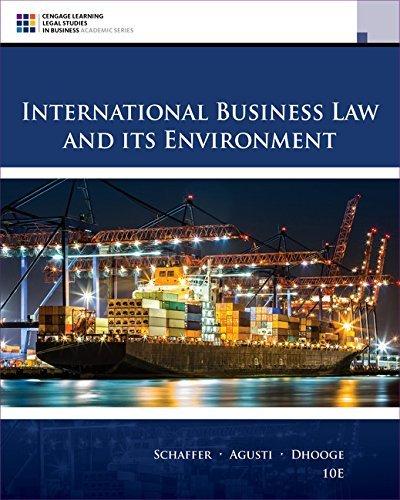The United States has long sought ways to reduce smoking by children. In 2009 the United States
Question:
1. Did the U.S. prohibition on clove cigarettes prohibit the import of Indonesian cigarettes on its face, or did it merely prohibit a flavor of cigarette that happens to be produced primarily in Indonesia? Was this de facto or de jure discrimination in this case? How did this affect the Appellate Body's decision?
2. The report (not reproduced here) noted the similarities between Article 2.1 of the TBT Agreement, under which this dispute was decided, and Article III.4 of GATT 1994. Review Article III.4 of GATT 1994 in the last chapter and explain the differences between the two articles. The TBT Agreement applies to "technical regulations" but GATT 1994 applies to a broader range of discriminatory measures. Explain.
3. What were the options left to the U.S. after this report? What action did the United States take in response to the report?
Fantastic news! We've Found the answer you've been seeking!
Step by Step Answer:
Related Book For 

International Business Law And Its Environment
ISBN: 9781305972599
10th Edition
Authors: Richard Schaffer, Filiberto Agusti, Lucien J. Dhooge
Question Posted:





